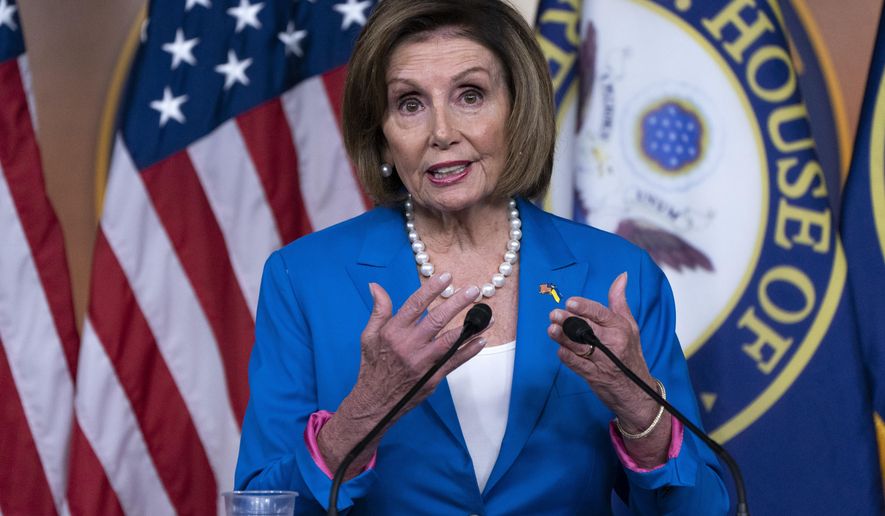Congress’ Democratic leaders are calling on President Biden to take a tougher stand against U.S. investment in China, calling it a national security issue.
House Speaker Nancy Pelosi and Senate Majority Leader Charles E. Schumer joined a group of bipartisan lawmakers to send a letter to the White House requesting executive action that would shore up oversight on investments abroad and supply chain resiliency.
“This is an effort we have long supported and advocated for as lawmakers. Such action should include robust stakeholder engagement and congressional input and oversight from the committees of jurisdiction to provide certainty and clarity for all involved,” the lawmakers wrote.
Joining Mrs. Pelosi and Mr. Schumer were Democratic Sen. Robert Casey Jr. of Pennsylvania, Rep. Rosa DeLauro of Connecticut and Rep. Bill Pascrell of New Jersey and Republican Sen. John Cornyn of Texas, Rep. Victoria Spartz of Indiana and Brian Fitzpatrick of Pennsylvania.
The lawmakers cite the pandemic as having shone a light on holes in U.S. supply chains and the risks of relying on foreign adversaries like China.
“When we cede our manufacturing power and technological know-how to foreign adversaries, we are hurting our economy, our global competitiveness, American workers, industry and national security,” they wrote. “Government action on this front is long overdue to address the scope and magnitude of these serious risks we face as a country.”
Congress also has been considering a bill that would block U.S. outbound investments into China when there are national security concerns at stake.
The proposal was removed from the bipartisan legislation to boost U.S. chip manufacturing that was signed into law in August.
White House national security official Peter Harrell said earlier this month that the Biden Administration has not made a final decision on regulating U.S. investments in China.
Wang Wenbin, a Chinese Foreign Ministry spokesman, said that the lawmakers’ request would be counter to the interest of the United States and other nations.
“The U.S. side has in recent years increasingly expanded the concept of national security, intensified unreasonable oversight of investments, creating difficulties and obstacles for foreign companies engaging in normal economic and investment cooperation,” Mr. Wang said.
• Mica Soellner can be reached at msoellner@washingtontimes.com.




Please read our comment policy before commenting.